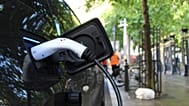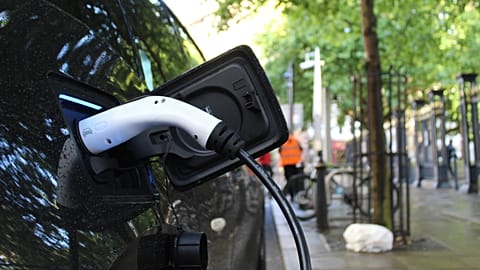Companies may have to think carefully before pledging to go 'carbon neutral' or reach 'net-zero' greenhouse gas emissions in the coming years as a deal between political groups in the European Parliament suggests the EU could soon introduce tougher restrictions on the use of carbon offsets.
MEPs are set to back severe limits on the use of carbon offsetting arrangements this week, as they step up an EU war on greenwashing.
 ADVERTISEMENT
ADVERTISEMENT
 ADVERTISEMENT
ADVERTISEMENT
The European Parliament’s environment and internal market committees will on Wednesday (14 February) vote on a proposed Green Claims Directive, setting out exactly how companies should back ecological promises.
A compromise deal between the main political groups, seen by Euronews, would make it much harder for companies to make ‘net-zero’ pledges without specifying in detail how they intend to get there.
Voluntary carbon offsets, where companies balance their own greenhouse gas output against certificates attesting that carbon has been removed elsewhere, are becoming more popular.
Investment bank Morgan Stanley put the size of the market at $2 billion in 2020, while Bloomberg New Energy Finance last year suggested it could reach $1 trillion by 2037.
Recent years have seen a vogue for corporations pledging to cut carbon emission to net-zero, with IKEA, McDonald’s and even oil and gas majors such as Shell and Equinor promising to do so by 2050.
Amazon has set itself a 2040 deadline, while Microsoft says it will be 'carbon negative' ten years before that.
But many such claims are based on plans to offset rather than reduce emissions, according to Lindsay Otis, a policy expert at the Brussels-based non-profit Carbon Market Watch, which last year warned that multinationals are too reliant on market-based solutions.
The European Commission has proposed that claims based on offsetting must be clearly separated from information about the firm’s own carbon footprint.
The EU executive’s plan would force companies to show their offsets are of high integrity and correctly accounted for, but MEPs want to go further.
Under the cross-party deal, lawmakers have agreed carbon credits should only be used to mitigate a firm’s residual emissions – those that can’t be cut by in-house measures such as energy efficiency improvements or switching to renewables.
Under the parliament deal, offsetting schemes must comply with a separate new EU law on certifying carbon removals, or otherwise be approved by the commission.
That means companies having to reduce their emissions by 90-95% by in-house actions, Otis said, although some MEPs have left some wiggle room for a less ambitious cut via a reference to “justified sectoral pathway variations”.
“Ideally, all claims that rely on offsetting (relating to a company's current and future activities) would not be allowed at all,” Otis told Euronews.
Lawmakers also agreed explicit environmental claims must be accompanied by a “time-bound, science-based and measurable commitment” to improve operations, including “measurable and verifiable interim targets”.
That adds to a separate directive agreed last year, which forbade companies claiming climate neutrality for products and services based on voluntary participation in offsetting schemes.
That measure, due to take effect in 2026, could end airlines offering passengers offsets to compensate for their ticket.
New plans to further strengthen restrictions are one of several “very welcome improvements” to the EU executive’s proposal, according to Blanca Morales, a sustainability specialist at the European consumer organisation BEUC.
Companies will now have to be more transparent about their climate-friendly claims, Morales told Euronews.
“They will need to ensure that offsetting plays a role only after implementing all technically and economically feasible changes in their own value chain, and publicly report their progress and have it independently verified,” Morales said.
“This is an important achievement to avoid misleading consumers who have a wrong understanding of climate neutrality claims and even believe that they mean that there are no CO2 emissions at all,” Morales added, citing a recent study.
If it passes in committee as expected after the backroom deal, the draft position must be approved by the parliament’s plenary session, in a vote scheduled for 11 March.
It must then be negotiated with EU governments, who have yet to formulate a joint position in the EU Council, but who are due to discuss the topic at a 15 February meeting.

















